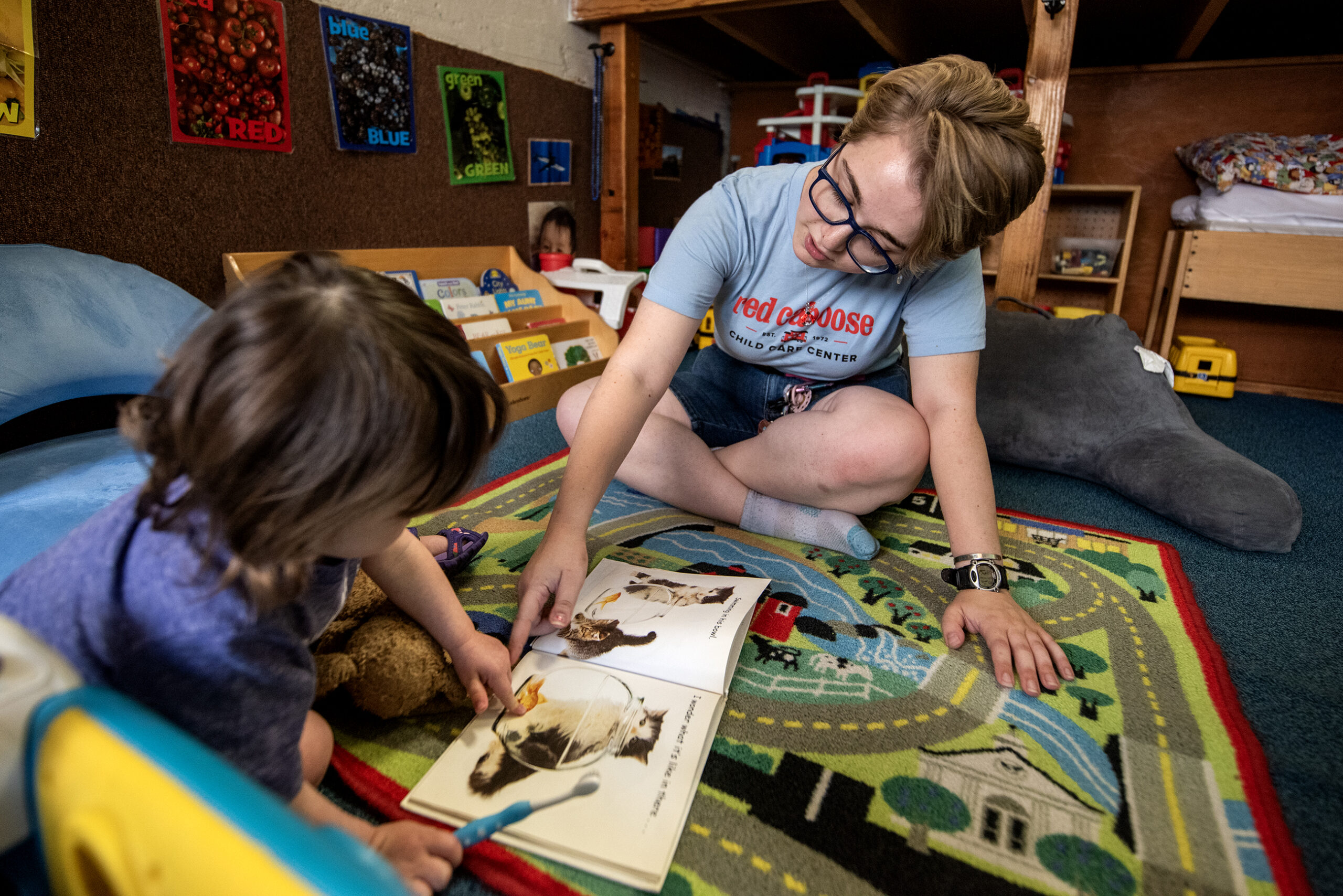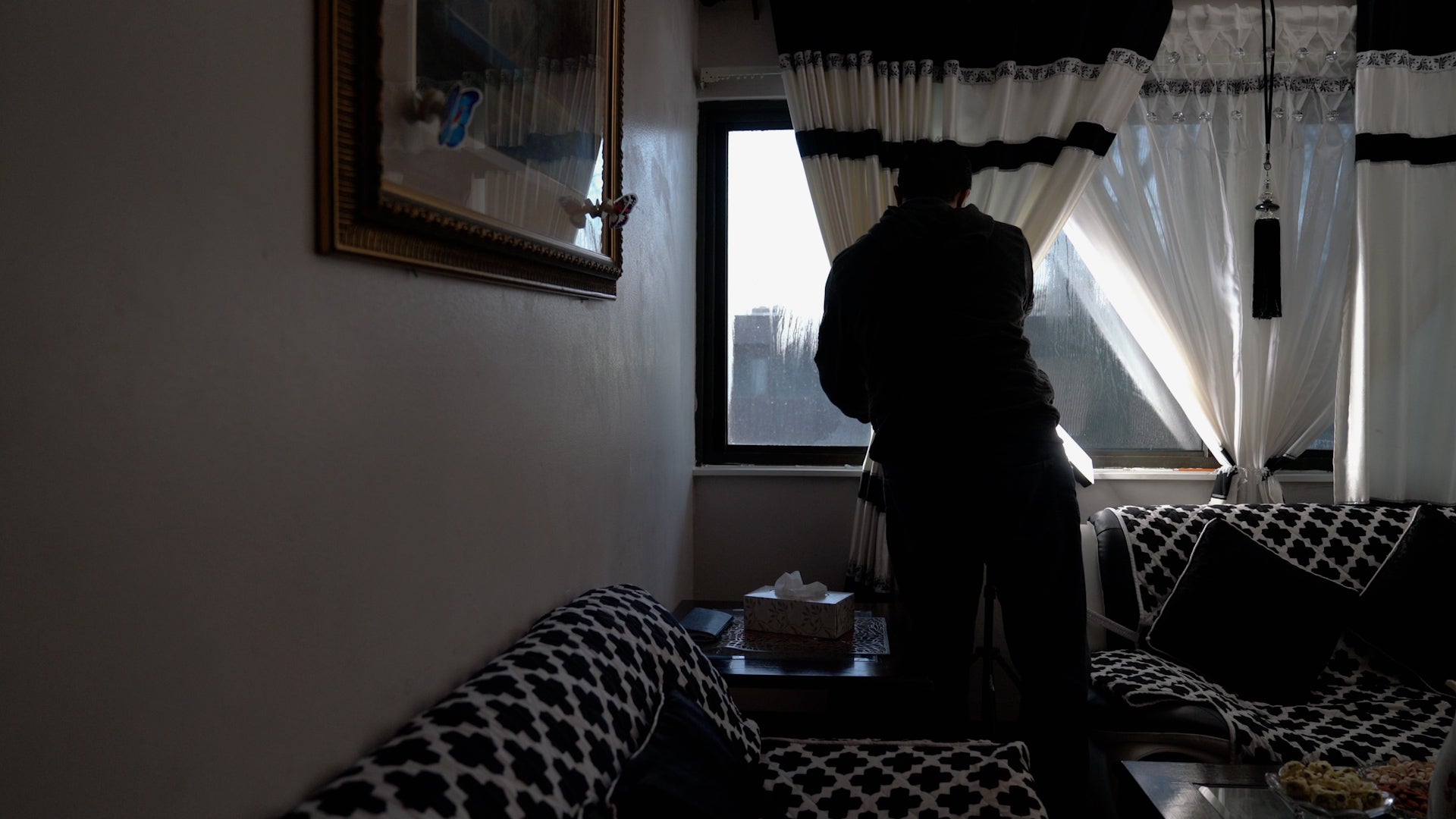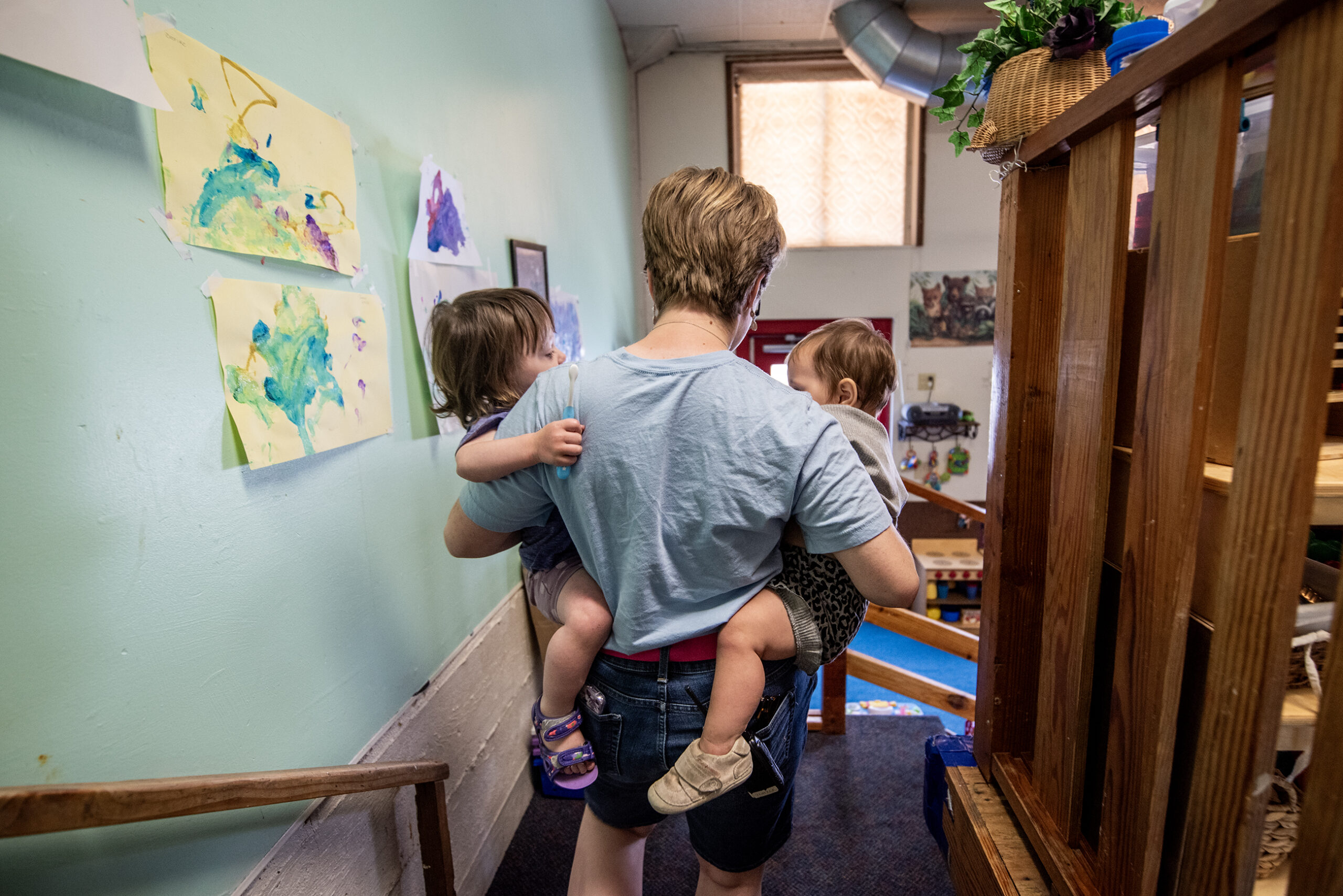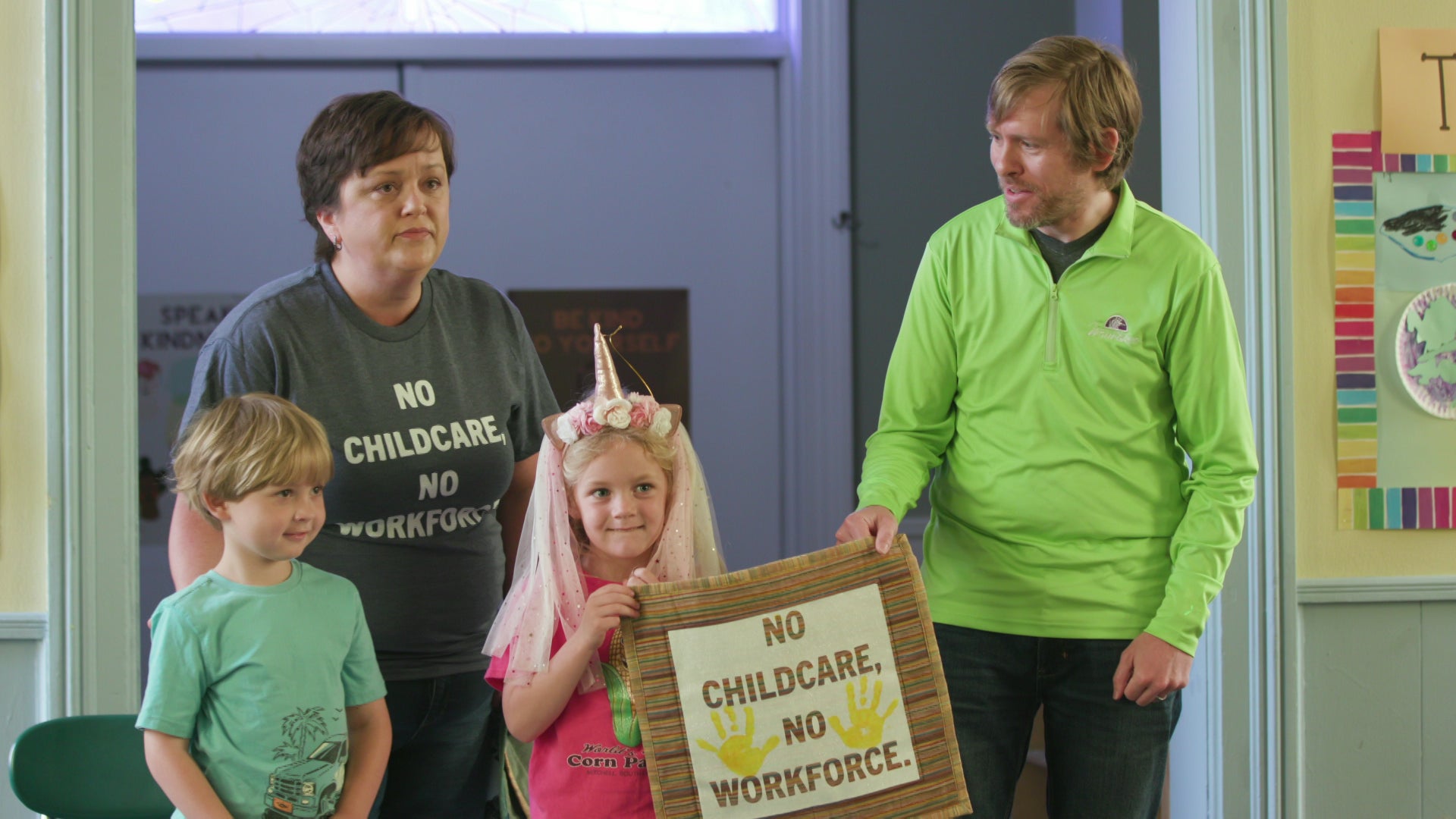Child care costs, and a lack of open slots in child care centers, are a burden for many Wisconsin families. So much so, parents can be forced to choose between going to work and staying home to watch their children.
This election year, Wisconsin Public Radio is asking people across the state what issues they care about as they head to the polls. Child care costs were one of the issues identified as a top concern for voters WPR talked to during an event in Green Bay.
In 2021, it was less expensive for a family to send two children to the University of Wisconsin-Madison than it was to send an infant and toddler to a child care center, according to a 2023 report from Forward Analytics, the research arm of the Wisconsin Counties Association.
Stay informed on the latest news
Sign up for WPR’s email newsletter.
Those costs have hurt the state’s workforce, disproportionately affecting women. In 2022, labor force participation among Wisconsin women fell below 60 percent for the first time since the 1980s, according to a report from the High Road Strategy Center, a worker-focused think tank at UW-Madison.
Wisconsin received close to $800 million in federal pandemic relief money directed to child care that allowed centers to stay open through a state program called Child Care Counts, according to Ruth Schmidt, who runs the Wisconsin Early Childhood Association.
Last October, Gov. Tony Evers directed $170 million in emergency federal funding toward the program to keep it funded through June 2025. At the time, the program was expected to run out of money by January 2024.
There’s been an ongoing standoff between the governor and the Legislature about whether to use state dollars to keep the program afloat.
WPR asked candidates for the 30th state Senate district, which includes most of Green Bay and its suburbs, and the 90th Assembly district, which includes the city’s east side, about how they would work to address child care costs.
30th Senate District candidates weigh in
Republican Jim Rafter of Allouez and Democrat Jamie Wall of Green Bay are competing to represent the greater Green Bay area in the state Senate.
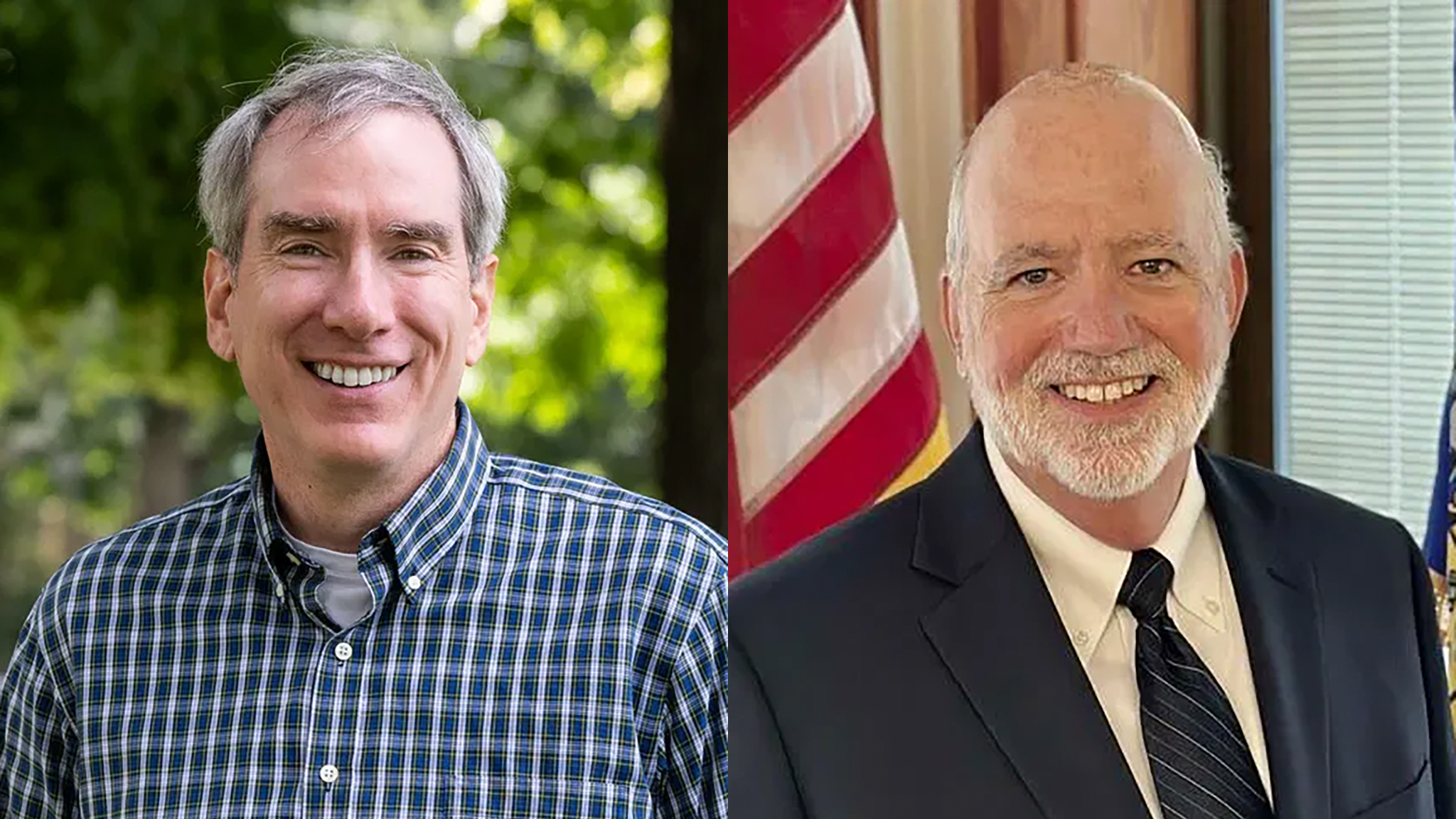
Both candidates said they’ve heard from residents that child care costs are too high. And both also said they would look for ways the state can bring those costs down for families.
Rafter was hesitant to support using state dollars to fund Child Care Counts, saying the program didn’t do enough to address the costs facing families.
“We have to make sure that it’s cheaper for the parents to have the kids in child care,” Rafter said. “I don’t know that Child Care Counts took care of that. It kept the doors open, but it didn’t make it more affordable to the parents.”
Wall said he believes the state can both help lower the costs to families and use Child Care Counts to support providers.
“There’s two ways we can address the issue: One is helping out the providers (of) child care, and the other is helping out young families, especially those without a lot of means to afford this,” he said. “Those are the two ways, and I think there’s room with the state’s surplus to do both.”
90th Assembly District candidates share opinions
In Green Bay’s 90th Assembly District, Democrat Amaad Rivera-Wagner is running against Republican Rebecca Henderson.
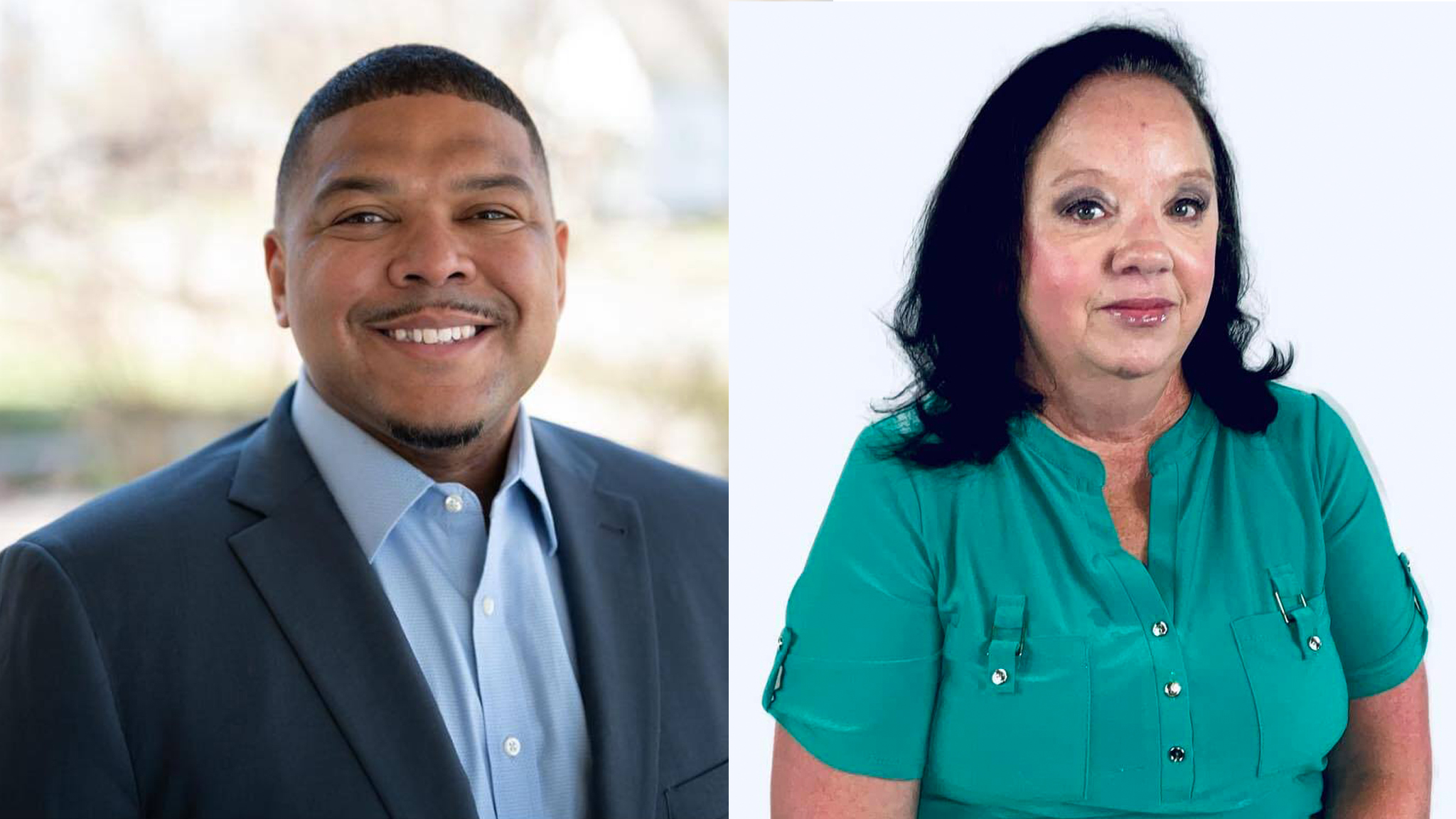
Like the candidates in the 30th Senate District, Rivera-Wagner and Henderson both said they want to try to bring child care costs down for families.
Rivera-Wagner was supportive of providing state funding for the Child Care Counts program.
“For me, that’s an easy first step, but I do think there are other elements that we should also be talking about,” he said.
He said he would support streamlining the certification process for child care workers and raising wages for people in the industry to make those jobs more attractive.
“If we’re going to ask people to take on the certifications, training and development to become a child care provider, we have to be able to increase the wages of child care providers as well,” he said.
Meanwhile, Henderson said she needed to do more research before committing to using state dollars to fund the Child Care Counts program.
“We’re all supposed to be good stewards of the funding that we receive and how it’s spent,” she said. “In general, I wouldn’t have a problem with supporting families to be able to work. I was a young mother. I had that same issue.”
She also said she would support a state program to repay tuition for people going to school for early childhood development once they’ve worked in the field for a while.
“I think that helps recruit and retain more high quality staff, which the children definitely deserve,” she said.
Wisconsin does offer scholarships for child care workers who pursue credit-based coursework.
Wisconsin Public Radio, © Copyright 2025, Board of Regents of the University of Wisconsin System and Wisconsin Educational Communications Board.

